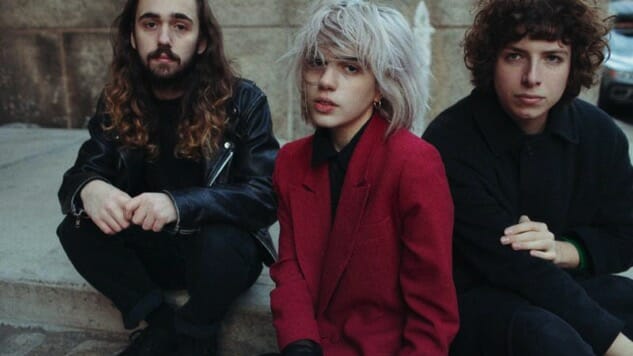Sunflower Bean: The Best of What’s Next

“Rock is a weird sort of music,” says Nick Kivlen, guitarist and vocalist for Brooklyn three-piece Sunflower Bean. “You don’t make your best work when you’re 60. All other art forms, – classical music, great painters, especially directors – usually make their best work well into their careers. But there’s just something primal and youthful with rock music. People can be 50 and cut a great record, but I think there’s a sweet spot where you’re the right age, and you’re young yet mature enough to make your best work. I think we get at least two more tries! I don’t know how I’ll look at this album in five years.”
Kivlen doesn’t have a whole lot to worry about. He and his bandmates (Jacob Farber on drums and Julia Cumming on bass and vocals) are all hardly out of high school, and they’re already near the height of the powers an indie rock band can achieve in this day and age. They’ve taken their native Brooklyn by storm, toured with DIIV and No Joy, been written up in Rolling Stone and now can say they followed up last year’s Show Me Your Seven Secrets EP with an equally impressive debut LP, Human Ceremony.
“The EP we put out last year is long,” Kivlen says. “So it almost feels like our first album, but [Human Ceremony] is definitely the culmination of the last two years.”
-

-

-

-

-

-

-

-

-

-

-

-

-

-

-

-

-

-

-

-

-

-

-

-

-

-

-

-

-

-

-

-

-

-

-

-

-

-

-

-








































